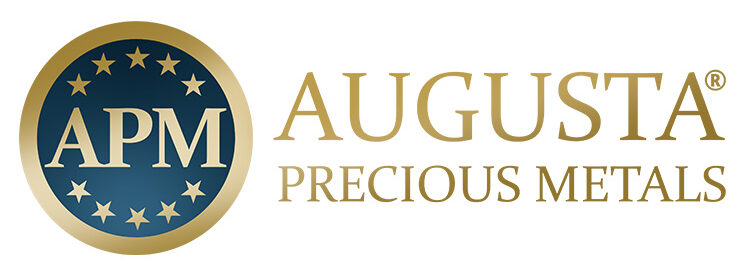You may wonder:
- Can gold be tracked?
- Are gold bars traceable?
And that’s exactly what we’ll cover today.
Specifically, we’ll talk about basics of gold ID, the challenges of traceability, and the regulations around this precious metal.
Without further ado, let’s get into traceable gold topic.
Recommended: See our #1 recommended Gold IRA company
The Basics of Gold Bar Identification
Let’s break down the fundamentals of identifying gold bars into three key factors:
Inherent Characteristics
- Density and Luster
Gold’s exceptional density and luster set it apart as a precious metal. Its unique physical properties contribute to its value and recognition.
- Corrosion Resistance
Gold’s remarkable resistance to corrosion ensures the preservation of its appearance and integrity over time.
Hallmarks: The Bar’s Identity
- Origin and Manufacturer
Hallmarks reveal the geographical origin and the mint or manufacturer responsible for producing the gold bar.
- Purity Level
Hallmarks also specify the purity of this precious metal, indicating the percentage of pure gold in the bar.

- Weight Information
Occasionally, hallmarks include the weight of the gold bar, providing a crucial reference for both investors and traders.
Gold Bar Serial Numbers: Unique Identifiers
- Enhanced Traceability
Serial numbers serve as unique identifiers for individual gold bars, enabling precise tracking and differentiation.
- Security and Accountability
The inclusion of serial numbers enhances security within the precious metal market and ensures accountability, safeguarding against counterfeiting and fraudulent activities.
Traditional Traceability of Gold Bars
So, what are the traditional methods used to trace this yellow metal?
Historical Tracking Methods
Throughout history, meticulous record-keeping and documentation have been essential for tracking gold bars.
These records have not only maintained the integrity of this precious metal supply chain but have also served as invaluable historical accounts of gold transactions.
Fun fact:
The ancient Egyptians were among the first to document their gold dealings in detailed hieroglyphics.
The Role of Refineries and Mints
Refineries and mints have been central to gold bar traceability.
These institutions are responsible for refining raw gold, shaping it into bars, and adding hallmarks and serial numbers for identification.
In the United States, the U.S. Mint, with a history spanning over two centuries, has continually refined its production practices to ensure the quality and traceability of its precious metal products.
Ownership Records and Chain of Custody
High-value transactions necessitate meticulous ownership records and a secure chain of custody.
This approach involves maintaining detailed records of every ownership transfer, ensuring transparency and accountability.
Challenges in Tracing Gold Bars
Now…
There are certainly various challenges that associated with tracing gold bars.
While this metal is certainly valuable, it’s not immune to issues that can complicate the process of tracking its journey through the global marketplace.
1) The Problem of Counterfeit Gold
Counterfeit gold bars pose a significant challenge to traceability.
Crafty individuals have been known to create counterfeit bars that look virtually identical to genuine ones, making it difficult to distinguish real from fake.
This highlights the importance of advanced authentication methods.
2) Smuggling and Illegal Trade
Gold smuggling and illicit trade further complicate traceability.
Unregulated or underground gold markets can facilitate the movement of the metal without proper documentation, making it challenging to ascertain the origins and legitimacy of the metal.
3) The Role of Private Ownership and Confidentiality
Some individuals prefer to keep their precious metal holdings discreet, and they may opt for gold bars with minimal or no markings.
While this is within their rights, it can hinder traceability efforts, creating opacity within the market.
READ ALSO: Are 1g Gold Bars Worth Buying?
Modern Technologies for Gold Bar Traceability
So, what are the modern technologies that have revolutionized the way we trace gold bars, ensuring greater accuracy and security in the process.

Advancements in Bar Marking and Tracking
Thanks to cutting-edge techniques and technology, the process of marking gold bars has become more sophisticated.
Laser etching and micro-engraving, for instance, allow for intricate markings that are both tamper-resistant and easily traceable.
Blockchain and Digital Records
Blockchain technology has made a significant impact in the world of gold traceability.
By using blockchain, information about a gold bar’s journey is stored in a decentralized and tamper-proof ledger, providing transparency and trust in the data.
The Role of Assayers and Third-Party Verification
Assayers, experts in assessing the purity of precious metals, play a pivotal role in verifying the authenticity of gold bars.
Third-party verification by reputable organizations further adds credibility to the traceability process.
Regulatory Frameworks & Compliance
This info guide wouldn’t be complete without mentioning the regulatory frameworks and compliance measures to ensure transparency and accountability in the industry.
Government Regulations and Reporting Requirements
Governments around the world have implemented regulations to oversee the precious metal industry.
These regulations often include requirements for documenting gold transactions, verifying the authenticity of yellow bars, and reporting large transactions to prevent money laundering and illicit activities.
International Agreements and Anti-Money Laundering Efforts
International organizations, such as the Financial Action Task Force (FATF), have developed guidelines and recommendations to combat money laundering and terrorist financing within the gold trade.
These agreements promote international cooperation and work to prevent money laundering.
Transparency Initiatives in the Gold Industry
Within the gold industry, various transparency initiatives have been established to improve traceability.
For instance, the Responsible Jewellery Council (RJC) sets standards for responsible sourcing, including the traceability of the metal’s origin.
These regulatory frameworks and compliance measures collectively work to ensure that the traceability of gold bars aligns with international standards.
This also minimizes the risk of illicit activities and enhancing the integrity of the gold supply chain.
Is Gold Traceable? (Conclusion)
While there are people who don’t like the IRS and the government tracking gold purchases, you can’t fully avoid it.
As seen here, there are intricate tracing processes.
Arguably, the traditional methods, the modern technologies, and the regulatory frameworks help safeguard their authenticity and maintain in the global gold market.
If you’re doing everything legally and simply want to avoid sales taxes when buying gold, then there are ways to do it.
You can also consider Gold IRAs that help alleviate confusion when it comes regulations and requirements because your custodian takes care of all that.
Just make sure to work with a reputable one.
Speaking of which:
Augusta Precious Metals is the #1 Gold IRA company.
#1 Recommended Gold IRA Company in the US (With the lowest fees and strongest reputation!) |
 |
Highlights:
|
Our Rating: |
Now, we’d like to hear from you:
- Is gold traceable, in your opinion?
- Is that good or bad?
Share your thoughts in the comments below!



